Commitment ceremonies offer an alternative for couples who want to declare their devotion without legal bindings. Unlike traditional weddings, commitment ceremonies are centered on personal vows and shared values rather than legal requirements, providing flexibility to create a unique, heartfelt celebration. If you’re considering this option, here’s a comprehensive guide to understanding and planning a commitment ceremony.
What Is A Commitment Ceremony?
Table of Contents
A commitment ceremony is a meaningful ritual where couples publicly affirm their love and dedication without the legal contract of marriage. It’s a non-legal marriage alternative where couples express vows, often incorporating spiritual or cultural elements personal to their relationship. Couples may opt for such a ceremony to celebrate their relationship for various reasons, including spiritual beliefs, legal constraints, or personal preferences.
So, what is a commitment ceremony? At its core, it’s about expressing commitment on one’s own terms, focusing on the symbolic and emotional connection rather than the legalities. This type of ceremony is for those who wonder, “Can you be married, but not legally?” With a commitment ceremony, the answer is yes.
Commitment ceremonies have also gained traction in Hollywood recently as celebrity couples move away from legal marriages. Some famous couples that have opted for commitment ceremonies in the last decade include:
- Pop icon, Lady Gaga, and her partner Taylor Kinney
- Blood Diamond actor, Djimon Hounsou, with Kimora Lee Simmons
- Jennifer Aniston and Justin Theroux
- Beyonce and Jay Z (Although they were already married, they renewed their vows through a commitment ceremony
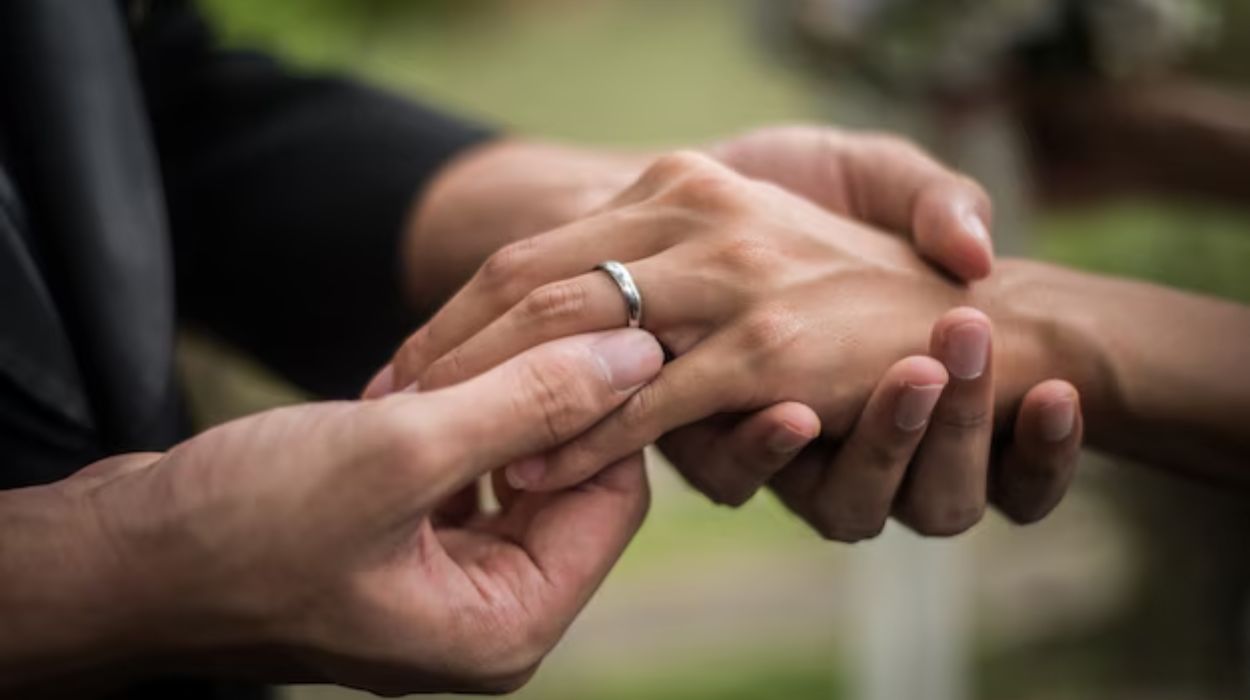
Commitment ceremony vs wedding: The key differences
If you’re planning a symbolic union and wondering, “Commitment ceremony vs wedding: which is right for us?, here’s an overview. Both options allow couples to express love and devotion, yet they serve very different purposes. A traditional wedding typically involves legal formalities, resulting in a legally recognized union. On the other hand, a commitment ceremony is a more personal, non-legal marriage that celebrates the emotional bond without binding legal contracts.
Related Reading: The First Year Of Marriage Is So Important | How To Make It Count
For those that desire getting married spiritually but not legally, a commitment ceremony offers a ceremony framework similar to weddings, including the option for exchanging rings, vows, and hosting a reception—minus the legalities. Let’s dive into five key distinctions that set commitment ceremonies apart from traditional weddings.
- Legal status: A wedding creates a legally recognized union, while a commitment ceremony is a non-legal marriage
- Documentation: Weddings result in a marriage certificate issued by the government; you can include a symbolic commitment ceremony certificate in a commitment ceremony it won’t be legal
- Purpose: Commitment ceremonies focus on the emotional and spiritual relationship rather than legal recognition
- Legal benefits: Couples that opt for a commitment ceremony can’t avail the employment or tax benefits that come with a legal marriage
- Insurance benefits: Unlike a traditional marriage, a non-legal marriage doesn’t qualify a couple to share insurance benefits
Reasons for choosing a commitment ceremony over a wedding
Historically, commitment ceremonies were popular among LGBTQ+ or interracial couples as they weren’t legally allowed to get married. While the laws have now changed in a majority of places, many couples still choose non-legal ceremonies for diverse reasons. Some may want the freedom to express love outside the confines of legal frameworks, while others may be attracted to the intimate, flexible nature of a commitment ceremony.
A couple in their 30s, who opted for a commitment ceremony, share, “We believe that marriage is a union of two souls. It’s a very personal aspect of our lives and the government shouldn’t have to do anything with it. At least, that’s what we wanted for ourselves.”
There’s a rising trend among couples who prioritize spiritual or personal connections over official status and are interested in how to get married without government involvement or just prefer a vow ceremony. This non-legal marriage approach has also gained popularity among couples who value inclusivity, sustainability, or alternative lifestyles.
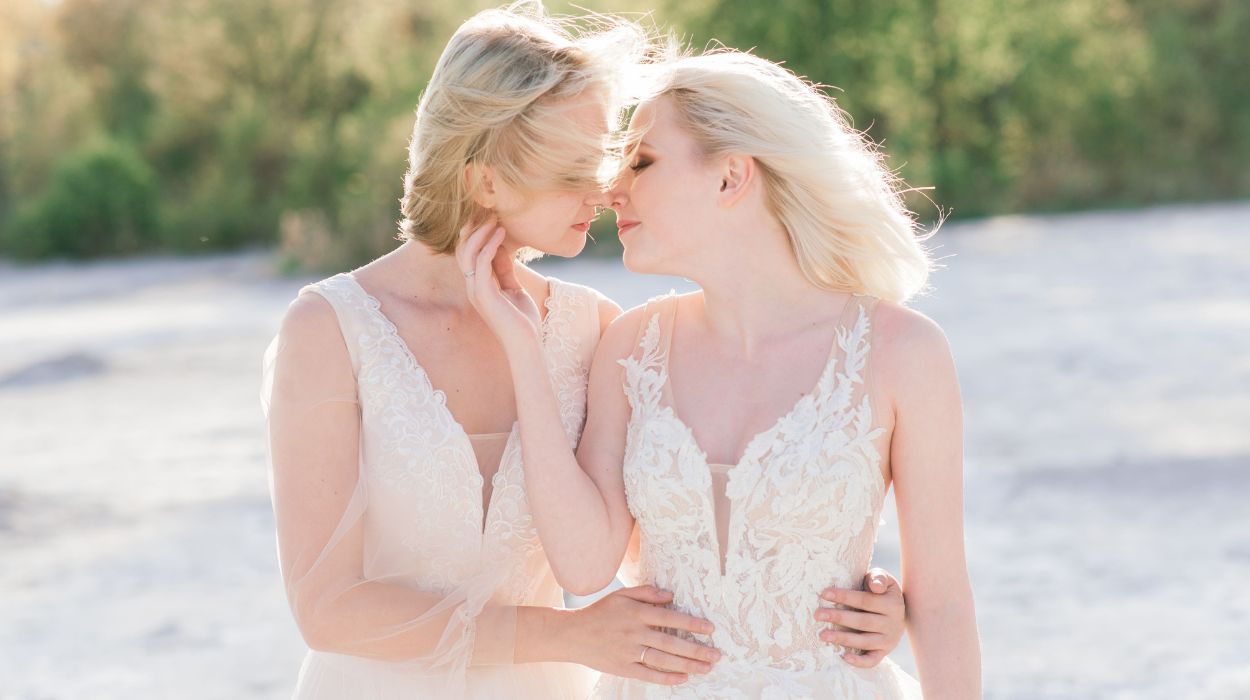
For others, a commitment ceremony feels more personal and authentic, giving them the freedom to design every aspect of their celebration. Here are five compelling reasons why couples choose a commitment ceremony over a traditional wedding:
- Legal restrictions: In places where same-sex marriage is still not legally allowed, such couples may choose a commitment ceremony to symbolize their union
- Privacy: Couples who want a personal vow ceremony away from legal scrutiny
- Flexibility: Allows couples to design a ceremony unique to their personalities without government-imposed frameworks
- Belief system: Ideal for those wanting a spiritual, non-legal marriage
- Inclusivity: Welcomes diverse cultural and spiritual practices without restrictions
- Symbolic gesture: It’s about love and connection rather than fulfilling legal obligations
Pros and cons of a commitment ceremony
While commitment ceremonies can be a beautiful way to celebrate love, they come with unique advantages and limitations. This type of ceremony works well for those desiring a personalized, intimate affair but may pose challenges for couples seeking legal rights or protections. By focusing on commitment ceremony vows and creative elements, many couples find this style of celebration fulfilling and meaningful.
Related Reading: How to Tell Someone You Just Want to Be Friends: 15 Examples
For those wondering “Can you be married, but not legally?” a commitment ceremony answers affirmatively, allowing couples to embody their bond without formalities. However, it’s essential to consider both the benefits and potential drawbacks, particularly if you’re planning a long-term future with shared assets, insurance, or inheritance plans. Here are some significant pros and cons to help weigh your options:
| Pros | Cons |
|---|---|
| Couples can craft a highly personalized commitment ceremony | There are no legal safeguards for property or inheritance |
| They can focus solely on the relationship without worrying about legal formalities | No legal rights such as tax benefits |
| Suits couples who want a non-legal marriage that aligns with their beliefs | Family or friends may not recognize the ceremony’s significance |
| Commitment ceremony vows are deeply personal, and the experience is often more intimate | Insurance limitations |
How To Plan A Commitment Ceremony
Planning a commitment ceremony allows for a highly personalized approach that traditional weddings may not offer. It’s a journey of weaving together shared values, creating meaningful moments, and planning a celebration that mirrors the unique essence of your relationship. With the freedom to include only the elements that resonate most, couples often find this approach rewarding. Whether interested in commitment ceremony ideas to enhance the event or simply wondering how to get married without government involvement, here’s a stepwise guide to crafting a beautiful, unforgettable ceremony:
- Define your vision: Decide if you want the ceremony to be spiritual, symbolic, or theme-based. Explore elements that you want to add to your weddings such as bridesmaids/groomsmen, hashtag ideas, any traditional rituals, etc.
- Choose a venue: Select a setting that aligns with your preferences, be it a beach, garden, or cultural space. Or you can go for something completely different, like my friend Alisha did. She and her partner are both very adventurous people. So they decided to go skydiving as their commitment ceremony. They exchanged their vows on the plane, kissed, and then jumped together. Honestly, the coolest couple I know!
- Prepare commitment ceremony vows: Craft personal promises that reflect the essence of your relationship
- Create a symbolic commitment ceremony certificate: Consider designing a certificate as a keepsake
- Select attire and decor: Reflect your personalities with outfits and decorations that complement your ceremony style
- Plan ceremony flow: Arrange a schedule including vow exchanges, readings, and any symbolic rituals
- Invite guests: Send invitations to friends and family who understand and support your choice
- Arrange to document the day: Hire a photographer or videographer to capture the moments
- Arrange for celebrants or officiants: Some couples choose spiritual leaders or close friends to officiate
- Enjoy your day!

Infographic On Commitment Ceremony Ideas
Planning a commitment ceremony opens up endless possibilities for creativity and personalization. From rituals rooted in ancient traditions to unique, modern takes, commitment ceremony ideas can be as diverse as the couples planning them. This style of ceremony invites couples to celebrate their connection in ways that might not fit within a conventional wedding framework, creating a memorable day that’s truly theirs.
To inspire your planning, here are some unique ideas for commitment ceremonies that capture the spirit of love and commitment:
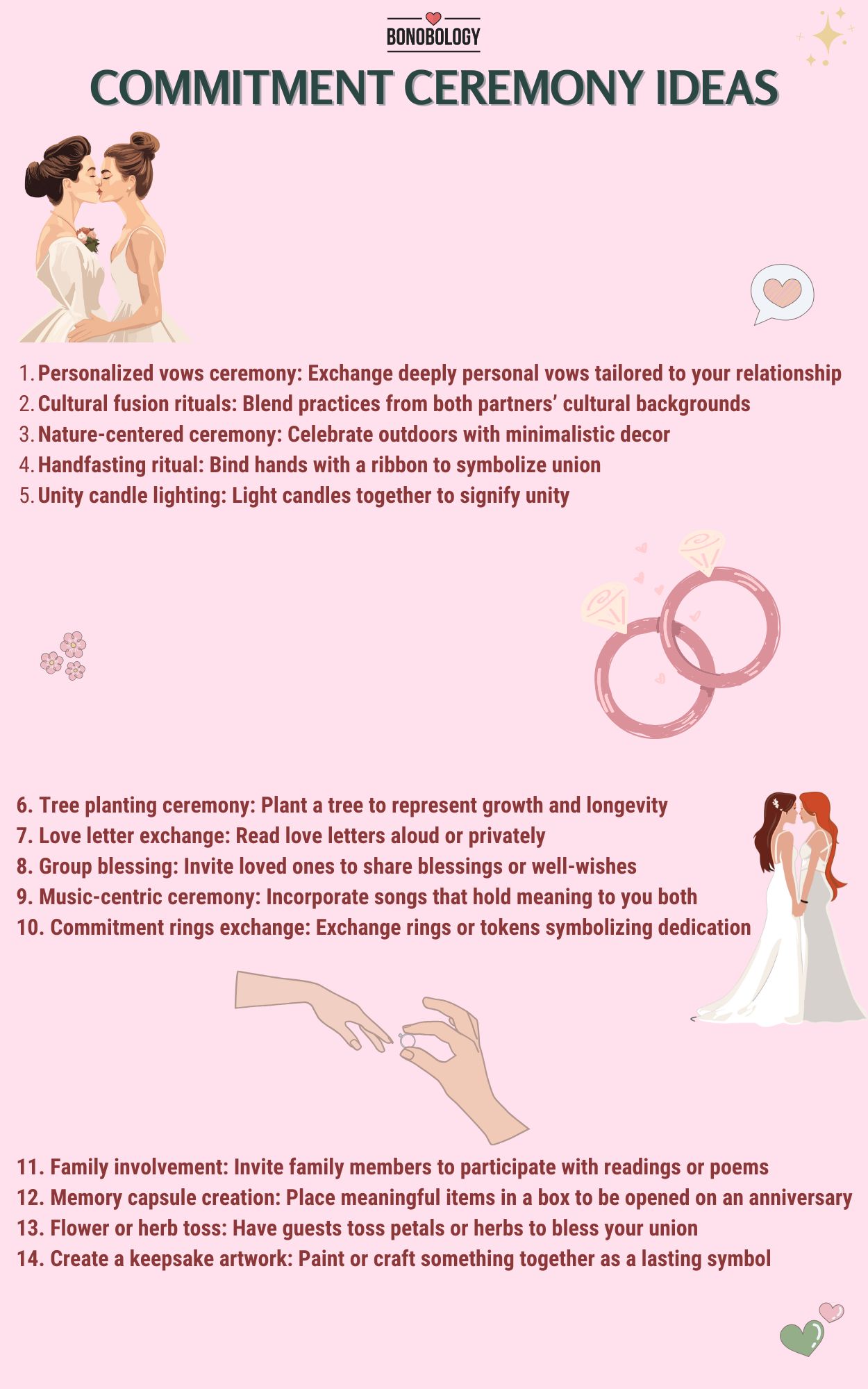
Key Pointers
- A commitment ceremony is for getting married spiritually but not legally
- As it does not have any legal standing, you won’t get a marriage certificate, tax benefits or insurance benefits with a commitment ceremony
- Couples may opt for a commitment ceremony if they don’t want any legal hassle or seek flexibility
- Planning a commitment ceremony is similar to a wedding, expect the legal part, where you can choose the traditional element you want to keep and add new ones if you want
Final Thoughts
Commitment ceremonies provide an alternative to traditional weddings, celebrating love without the constraints of legalities. Whether you’re interested in exploring the concept of non-legal marriage, a commitment ceremony offers endless possibilities to express and celebrate your unique connection.
How To Text A Girl For The First Time: 15 Tips And 75 Examples
Your contribution does not constitute a charitable donation. It will allow Bonobology to continue bringing you new and up-to-date information in our pursuit of helping anyone in the world to learn how to do anything.

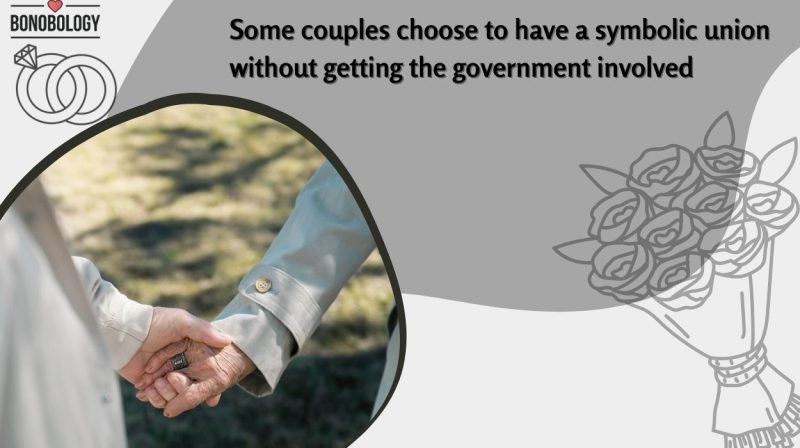



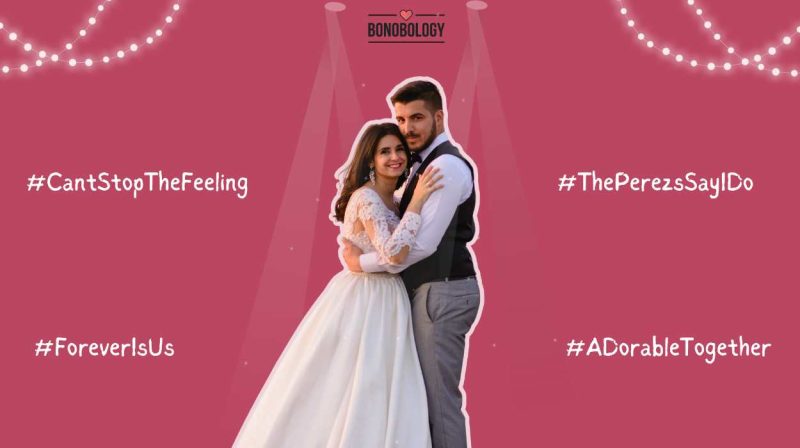


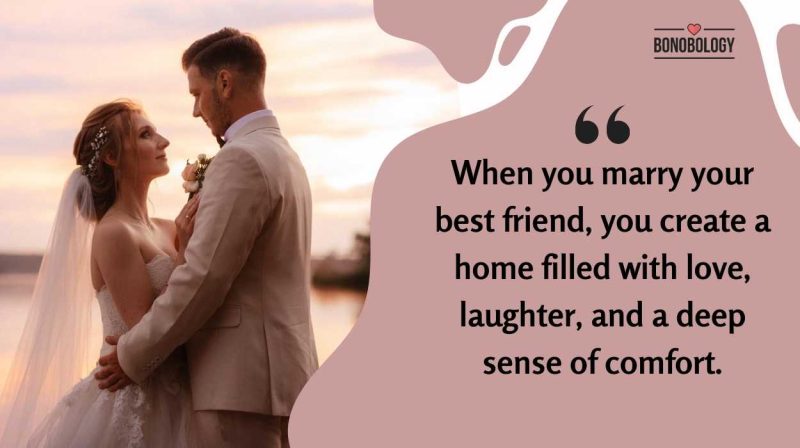
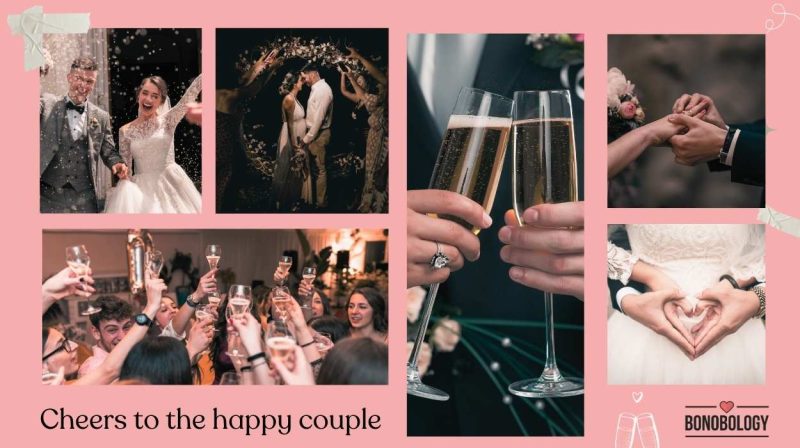
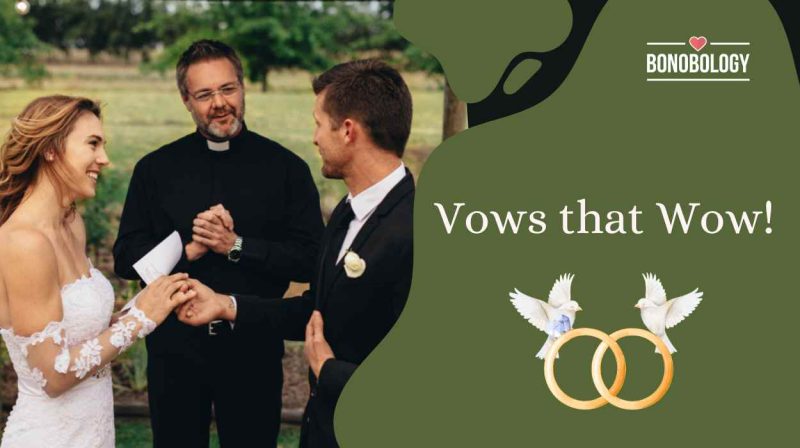

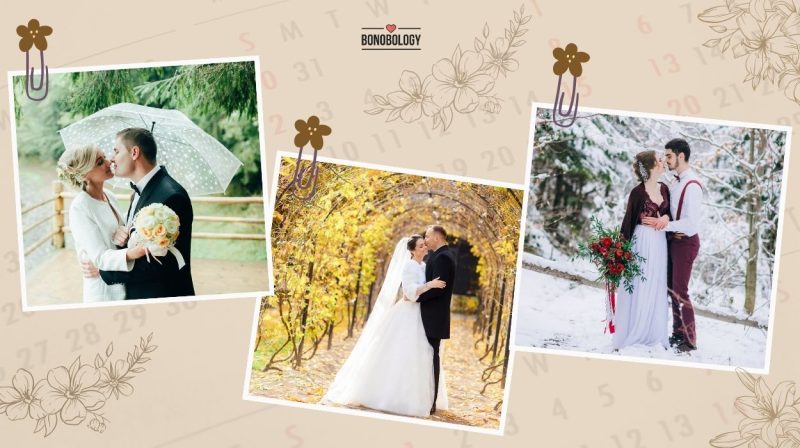


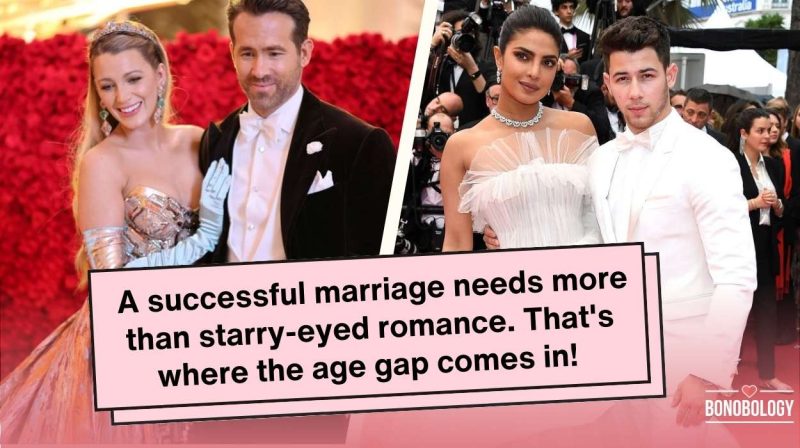







Featured
The First Year Of Marriage Is So Important | How To Make It Count
The Perfect Love Letter To My Wife: 35 Samples For Inspiration
100 Best Wedding Hashtag Ideas To Take Inspiration From
Funny Marriage Advice For Newlyweds: Keep The Laughter Alive!
Meaningful Moments: Personalizing Your Engagement Ring Story
13 Benefits And 5 Struggles Of Marrying Your Best Friend
41 Funny Wedding Toasts That’ll Leave Everyone Laughing
Wedding Vows For Her – 100 Examples To Inspire You
15 Things To Do When Husband Is Not Affectionate Or Romantic
How To Choose The Best Month To Get Married – A Complete Guide
40 Romantic Things To Say To Your Husband
12 Ways To Encourage Your Husband
What Is the Best Age Difference For A Successful Marriage?
13 Wonderful Benefits Of Marriage For A Man
Why I Love My Husband – 30 Beautiful Reasons All Women Agree With
11 Signs Of A Happy, Healthy Marriage
Does My Husband Love Me? 15 Adorable Signs He Loves You Deeply
15 Real Reasons Your Wife Avoids Intimacy
A Spring Wedding Checklist You Just Can’t Go Wrong With
10 Simple Rules For A Happy Marriage